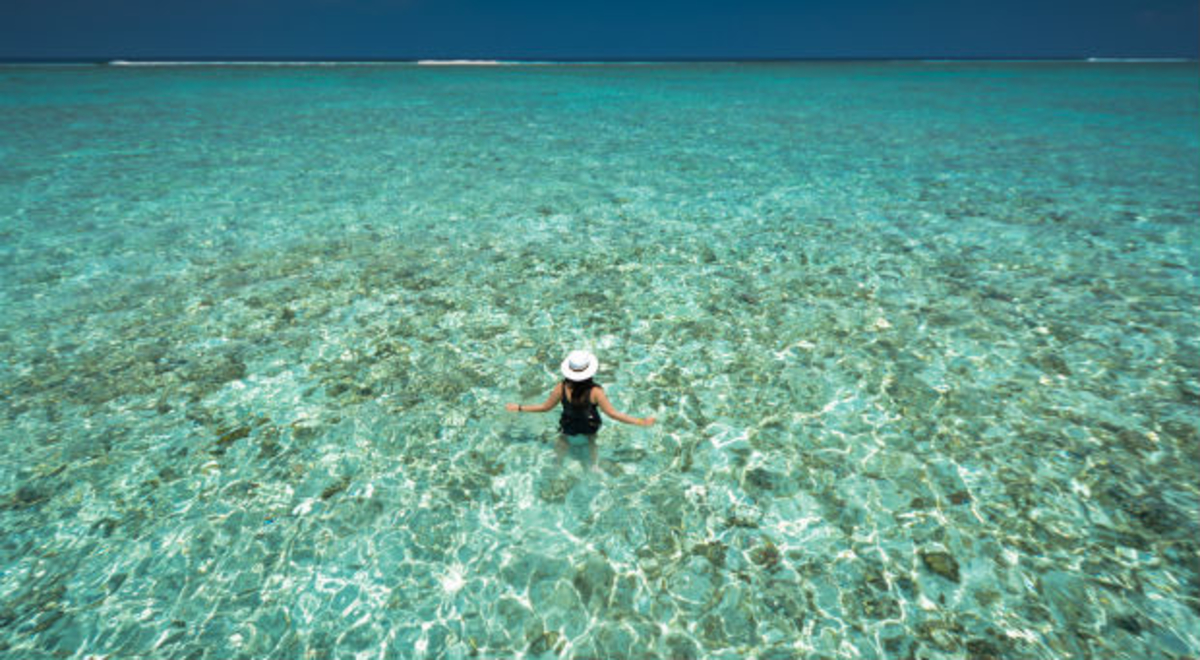Cuba may be one of our most popular beach vacation destinations, but before booking, our savvy clients often raise concerns. We hear questions like, is Varadero safe? Are there sharks in Cuba Varadero that make water sports risky? As well as people seeking advice about COVID-19.
Is Cuba Safe?
From guide book warnings, online forums and travel safety advisories, sometimes it’s a wonder we ever leave our homes to go on vacation! This sentiment particularly rings true when it comes to Cuba. More than 1.2 million Canadians travel to Cuba every year, accounting for 40% of visitors, making us the most popular nation for tourism to the island country.
Yet in spite of Cuba’s popularity with sun-seeking Canucks, our travel agents are often asked a litany of concerns like, is Cuba dangerous, is Cuba safe for Canadian tourists, and so forth. Fear not, wise traveller! We’re here to address your worries and answer your FAQs about safety in Cuba, to hopefully shed light on the facts and debunk the myths!
So, is Cuba safe? Most visits to Cuba are worry- and trouble-free vacations. Crime levels are low, much in thanks to an austere and prominent policing known as the Committee for the Defense of the Revolution (CDR). Violent crime rates are low, however, pickpocket incidents do happen, particularly looking for high-tech items like smartphones and laptops. When in central and Old Havana, err on the side of caution and take a taxi at night. Like anywhere in the world, including home, keep your wits about you.
Coronavirus in Cuba
For the most up-to-date information about Cuba’s travel protocols, please visit Flight Centre’s interactive COVID-19 travel map or ask one of our Travel Experts.
At the time of writing, Cuba’s healthy and safety rules include:
- Before travelling to Cuba, you must present a negative PCR test within 72 hours of your arrival and proof of health insurance that covers COVID-19. You’ll also need to fill in the online Health Declaration form.
- At the airport, you’ll receive another COVID-19 PCR test and pay a health fee.
- All visitors must book a stay at one of 20 approved quarantine hotels to await the results of a PCR test (which will be taken at the hotel on the fifth day following arrival).
- While in destination, you can expect safety precautions such as physical distancing, mandatory face masks in public places, and businesses and beaches open with reduced capacity.
Cuba Vaccinations
The Government of Canada recommends the following Cuba vaccinations: Hepatitis A, Typhoid and Tetanus. Hepatitis and rabies also good for those planning a more rural trip within the country. While they are not mandatory, consider where you are travelling. Even five-star Cuba resorts are not immune to communicable diseases and Hepatitis contamination, despite best efforts to maintain the highest degree of cleanliness, therefore it is wise to make sure you get vaccinated. These can be acquired at your family doctor, but may vary by province. Other vaccines are available at a travel clinic, for an additional cost.
The World Health Organization (WHO) recommends the following Cuba vaccinations:
- typhoid
- cholera
- hepatitis A
- hepatitis B
- rabies
- measles
- mumps
- rubella (MMR)
- influenza
At the time of writing, COVID-19 vaccinations are not required for entry in Cuba. Please ask your Travel Expert for the latest information.
Are There Sharks in Cuba?
Dun-dun.
Dun-dun.
Dun-dun-dun-dun...
Whether you’re terrified every time JAWS reappears on TV, or you're a bonafide selachimorphaphile (that’s just us trying out a fancy way of saying 'shark lover'), a common question we get asked is, “are there sharks in Cuban beaches?”
Indeed, Cuba is home to half the species of sharks that live in the Caribbean sea and many other marine life and fish populations. The bull shark-infested waters that Cuban asylum-seeking migrants were rumoured to swim through were in fact true, if not somewhat of a hyperbole. Cuba is a biodiversity epicentre for sharks, in part due to the coral reefs that surround the island.
For scuba divers and snorkelling enthusiasts, dangerous species are extremely rare to come across, so don't stress about shark attacks. The extent of what you'll usually encounter are smaller ones like nurse sharks. Cuba is a wonderful destination to appreciate marine biodiversity. As a developing nation in many respects, a lot of the animal protection laws we take for granted in Canada are lacking, so ask your Flight Centre travel expert to recommend spots or schools that respect the other kind of schools!
That being said, one fifth of Cuba's coastline has been declared a protected area by the government, and there are strategies in place for introducing new regulations in this field.
The most common sharks and animals you'll find in Cuban waters are:
- Caribbean Reef Shark
- Blacktip Reef Shark
- Tiger Shark
- Nurse Shark
- Bull Shark
(Our apologies if we just sounded like the chondrichthye version of Bubba Gump.)
Put it this way -- you’re more likely to see the automotive shark fins of a Cadillac Coupe de Ville, or one of the classic cars Havana is known for, than actual predatorial sharks swimming by.
Cuba Travel Advisory
Currently, there is no specific Cuba travel advisory for Canadian travellers. You may check the Canadian Government travel advisory to Cuba for additional and updated information.
There is an Embassy of Canada in Cuba, located in Havana, as well as a Canadian consulate in Varadero, for Canadians travelling in Cuba. Varadero is one of Cuba's most beloved beach resort towns, particularly popular with Canadians. If you're asking if Varadero is safe, it is generally viewed as such, but again, it is always important to be sensible and cautious.
In short, travelling to Cuba is a safe place to explore, thanks to relatively low crime rates and widespread acceptance of Canadian travellers, who provide a big boost to the Cuban economy each year.
We are always excited to talk to you about planning a safe and trouble-free Cuba trip. Let's make your next one a better beach vacation!
Got more questions about Cuba? Great!










